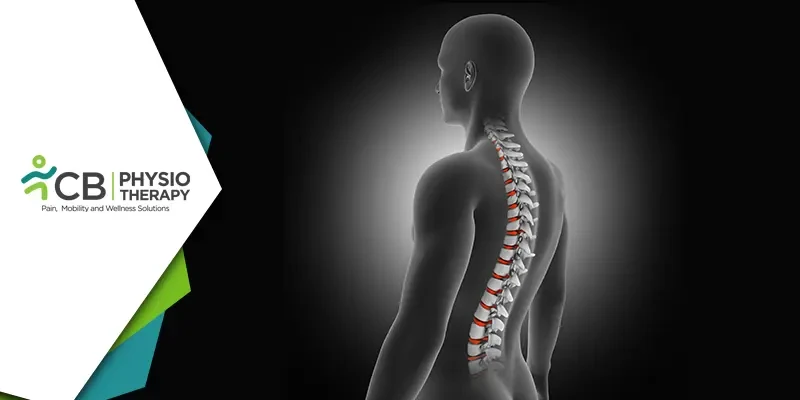Spinal surgery is a major procedure that can help alleviate chronic back pain, improve mobility, and prevent further damage to the spine. While the recovery process can be challenging, there are several do's and don'ts that can help patients recover as quickly and comfortably as possible. Spinal surgeries can help alleviate chronic back pain and other spinal conditions such as Herniated discs, Spinal Stenosis, Scoliosis, and Spinal fractures, but they can also require a significant amount of post-operative care to ensure a successful recovery. Proper post-operative care and following your physiotherapist's instructions can help speed up the recovery process. In this blog post, we will discuss the do’s and don'ts and activity precautions that can help you achieve a fast and safe recovery after spinal surgery.
Spinal Surgeries
Spinal surgeries are performed to treat a range of spinal conditions. These procedures are complex and require a significant amount of post-operative care for safe recovery. The recovery period after spinal surgery can vary depending on the extent of the surgery, and the patient's age, health, and fitness level. However, there are several do's and don'ts that can help patients recover quickly and safely.
Do's for fast recovery after Spinal Surgeries:
Follow your physiotherapist’s instructions:
After spinal surgery, your physiotherapist will give you specific instructions on how to care for your incision, manage your pain, and gradually resume your normal activities. It's crucial to follow these instructions carefully to ensure a smooth and speedy recovery. Your physiotherapist may provide you with a written recovery plan that outlines post-operative care. Make sure to read and understand it thoroughly and ask any questions you may have.
Attend physiotherapy:
Physiotherapy is an essential part of the recovery process after spinal surgery. A physiotherapist can help you develop a customized exercise plan to promote healing, improve your range of motion, and strengthen your back muscles. Physiotherapy can also help reduce pain and prevent complications. Attend all physiotherapy sessions as directed by your therapist.
Move around frequently:
Bed rest is no longer recommended for postoperative recovery after spinal surgery. Instead, it's essential to move around frequently to prevent blood clots, improve circulation, and prevent muscle atrophy. In the early stages of recovery, your physiotherapist recommends walking short distances several times a day. As you recover, you can gradually increase your activity level, as directed by your therapist. It's crucial to follow your therapist's guidelines on how much activity you should do and when. If you experience any pain or discomfort, stop and rest, and inform your therapist.
Practice good posture:
Good posture is crucial for spinal health and can help prevent back pain and promote healing. After surgery, it's essential to maintain good posture while sitting, standing, and walking. Avoid slouching and practice sitting, standing, and walking with your spine in a neutral position. You may need to use a back brace or other supportive devices.
Practice stress-reducing techniques:
Stress can interfere with the healing process and increase pain and discomfort after spinal surgery. Practicing stress-reducing techniques, such as deep breathing, and relaxation techniques. These can help reduce stress and promote healing. Consult with your physiotherapist to determine which stress-reducing techniques are appropriate for you.
Eat a healthy diet:
A balanced and nutritious diet can help promote healing and prevent complications. After surgery, your body needs nutrients to repair tissues and rebuild strength. Aim to consume foods rich in vitamins, minerals, and protein to support tissue repair and strengthen your immune system. Include plenty of fruits and vegetables, lean protein, whole grains, and low-fat dairy products in your diet. Avoid processed and high-fat foods, which can cause inflammation and hinder healing.
Stay hydrated:
Staying hydrated is crucial for proper healing after spinal surgery. Drinking plenty of water can help prevent constipation and promote wound healing. It's recommended to drink at least 8-10 glasses of water per day. Avoid alcohol and caffeine, which can interfere with hydration and sleep.
Don'ts for fast recovery after spinal surgeries:
Avoid heavy lifting:
Heavy lifting can put stress on your spine and disrupt the healing process. After surgery, it's essential to avoid lifting anything over ten pounds until your therapist gives you the green light. Lifting heavy objects can cause strain on your back muscles and increase the risk of complications, such as re-injury or infection. If you need to lift anything heavy, ask for assistance from family or friends.
Don't smoke:
Smoking can interfere with the healing process and increase the risk of complications after spinal surgery. Nicotine constricts blood vessels, reducing blood flow and oxygen to the healing tissues. This can delay healing and increase the risk of infection and other complications. If you smoke, it's essential to quit before and after surgery to ensure a successful recovery.
Avoid bending and twisting:
Bending and twisting can put a strain on your spine and delay the healing process. It is essential to avoid bending or twisting your back while recovering from spinal surgery. This includes activities such as picking up objects from the ground or twisting. Follow your physiotherapist’s instructions on when you can resume these activities.
Don't drive until you're cleared:
Driving too soon after surgery can be dangerous, as pain, stiffness, and medication can affect your ability to operate a vehicle. Wait until your doctor clears you to drive.
Avoid sitting or standing for long periods:
Prolonged sitting or standing can put a strain on your spine and interfere with healing. Take frequent breaks to move around and change positions.
Recovering from spinal surgery can be challenging, but following these essential tips can help speed up the healing process and minimize complications. Remember to be patient and follow your therapist's instructions, and don't hesitate to ask for help from family, friends, or healthcare professionals. With time, rest, and proper care, you'll be on your way to a full recovery.

